At 3am in Vinh Phuc , Claudia wakes up to meditate before embarking on three hours of labor sweeping the yard, picking up leaves and cooking.
This has been the routine for the past two weeks of the 37-year-old woman in Berlin (Germany) at the Truc Lam Tay Thien Zen Monastery. "My body is exhausted but strangely, my mind is at peace," Claudia said.
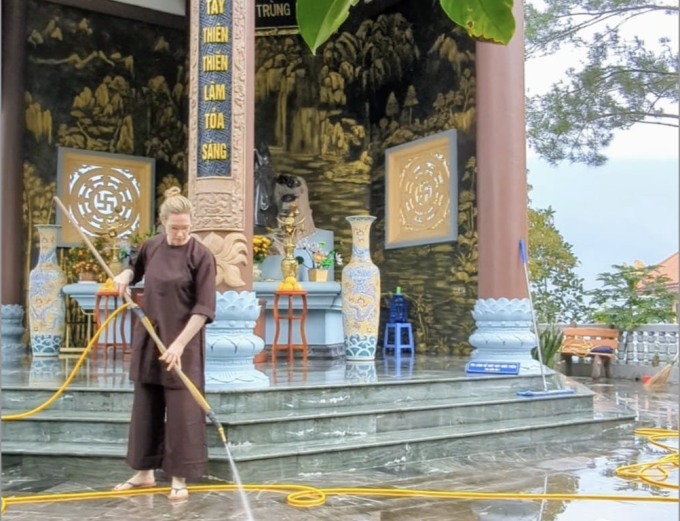
Claudia helps clean the yard of Truc Lam Tay Thien Zen Monastery in Vinh Phuc province, January 2024. Photo: Provided by the character
7 years ago, she had a major incident at work, fell into depression for a long time, so she started to seek meditation and Buddhist culture. Claudia discovered and practiced meditation in Thailand, China and spent two months going through some temples and meditation centers in Vietnam from December 2023.
Claudia accidentally found out about this Zen monastery through research on the Internet and some travel forums. Wanting to find a space to experience the spiritual life of the Vietnamese people, she asked to stay as a lay person for two weeks. The German woman bought two sets of blue and brown clothes and together with 20 other foreign lay people began a life of practicing, meditating and doing charity work.
“It's a far cry from my life alone in Germany,” Claudia said. “I feel like everyone here is like a family helping each other.”
In the monastery, there were three people who spoke English, who tried to help her with her activities while others patiently explained the problem through a translation app.
Claudia’s daily schedule starts from 3am to 10pm and includes meditation, labor (good work), sleep, repentance, and meditation. After breakfast, she cleans the yard in front of the Buddha statue, wiping down the tables and chairs. At around 10am, she and other lay people prepare food for lunch.
Here, Claudia learned to cook vegetarian dishes such as salads, braised mushrooms, and vegetable soups. "I enjoyed it so much that I had to tell my parents about Vietnamese vegetarian dishes. They have been in the restaurant business for 35 years, so I really wanted to see Vietnamese vegetarian dishes on the menu," Claudia said.
At first, she was unfamiliar with the Vietnamese habit of taking a two-hour nap, but at the monastery, it made her feel comfortable. Claudia plans to spend her last week here making 200 cakes for monks, nuns and Buddhists.
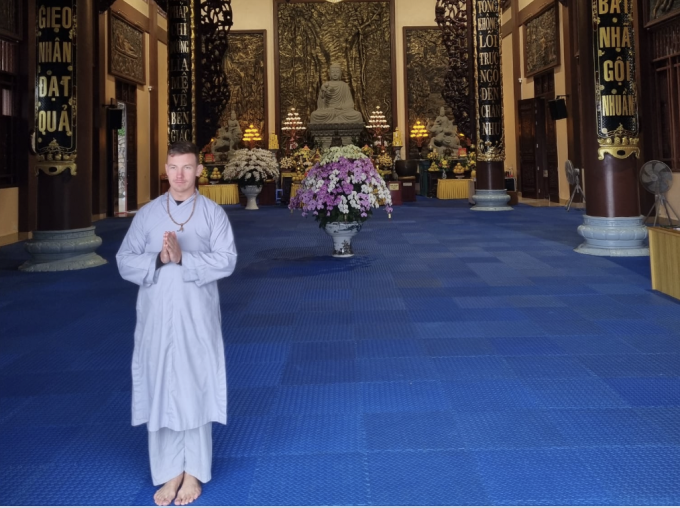
Marvin Jassmann at Truc Lam Tay Thien Zen Monastery in Vinh Phuc province, February 2024. Photo: Provided by the character
In mid-February, German marine engineer Marvin Jassmann, 31 years old, also took a bus from Hanoi to Tam Dao, Vinh Phuc to do volunteer work at Truc Lam Tay Thien Zen Monastery.
He said he turned to yoga, meditation and Buddhism during the stressful Covid-19 pandemic. "The upheaval in my life made me want to find peace," Marvin said.
He spent the first month of 2024 traveling around Vietnam and realized that he was very compatible with the nature and tranquility of the temples, pagodas, and monasteries in this country. Marvin found the 40,000 m2 Truc Lam Tay Thien Zen Monastery with lots of trees, flowers, grass, and silence. Here, he was approved to stay as a layperson with a schedule of meditation, prayer, merit, repentance, and rest.
"No one forces you to do anything with this schedule, all activities are up to your consciousness," he said. Every day, he voluntarily joins other lay people in planting trees, sweeping the yard, chopping firewood and doing chores in the kitchen.
Claudia and Marvin are representatives of the trend of foreigners coming to Vietnam to volunteer at pagodas. Venerable Hue Lam, representative of Truc Lam Tay Thien Zen Monastery, said that the phenomenon of foreigners coming to pagodas to volunteer and practice for a short time began to appear about 10 years ago but has developed strongly and become a clear trend in the past two years, since Covid-19.
Some foreign visitors find their way to the monastery through social media. They are mostly tourists from Germany, the US, and France, and usually stay from four days to two weeks.
The monastery does not limit the time of stay and provides bilingual English-Vietnamese books and meditation materials. In addition to volunteer work, visitors often spend time chatting with the monks. "They learn about Zen culture, psychology, and Vietnamese people's lives and take careful notes," said Venerable Hue Lam.
Among the Western visitors who come to volunteer are many under 25 years old, such as Silas Beier. The 21-year-old man from Cologne (Germany) spent the last 9 days of his Vietnam tour at the Zen monastery because he "loves the peaceful life so much".
Every day, he cleaned the kitchen, tables and chairs, and took care of the animals. At first, Silas Beier said he was unhappy because it was not his thing. He rarely did housework in Germany. "However, I still did the work with respect," Silas Beier said. Everything changed when he talked to monks and learned about Buddhism.
“I think Westerners like me can learn and heal a lot from living in a monastery,” says Silas Beier.
Commenting on this trend, Mr. Nguyen Tran Hoang Phuong, Director of the Institute for Social Tourism Research, said that the Covid-19 pandemic with its fluctuations and risks has made many people believe more in spiritual energy, religion and spirituality. A survey by a number of travel companies shows that the number of international tourists with religions has increased by 30% compared to before Covid-19.
Vietnam has become an attractive destination for this group of tourists because of its cultural, religious and meditation diversity. These factors create an environment and conditions for tourists to experience local life, practice meditation and study together. "Overall, the group of customers who come to Vietnam for spiritual and religious reasons is still quite small but has potential for development," said Mr. Phuong.
Marvin said that a few weeks of volunteering at the monastery helped change his perspective on food through the way Vietnamese people appreciate it. The monks and nuns pray before meals and try not to leave any leftovers.
“It’s different from my life in Germany, where people just buy food, microwave it, and then leave it,” he said. He believes the difference has created experiences and life lessons he can take back home.
"I'm a lot different, happier and more joyful," he said.
Ngoc Ngan
Source


![[Photo] Panorama of the Opening Ceremony of the 43rd Nhan Dan Newspaper National Table Tennis Championship](https://vphoto.vietnam.vn/thumb/1200x675/vietnam/resource/IMAGE/2025/5/19/5e22950340b941309280448198bcf1d9)
![[Photo] President Luong Cuong presents the 40-year Party membership badge to Chief of the Office of the President Le Khanh Hai](https://vphoto.vietnam.vn/thumb/1200x675/vietnam/resource/IMAGE/2025/5/19/a22bc55dd7bf4a2ab7e3958d32282c15)


![[Photo] Close-up of Tang Long Bridge, Thu Duc City after repairing rutting](https://vphoto.vietnam.vn/thumb/1200x675/vietnam/resource/IMAGE/2025/5/19/086736d9d11f43198f5bd8d78df9bd41)
![[Photo] General Secretary To Lam attends the conference to review 10 years of implementing Directive No. 05 of the Politburo and evaluate the results of implementing Regulation No. 09 of the Central Public Security Party Committee.](https://vphoto.vietnam.vn/thumb/1200x675/vietnam/resource/IMAGE/2025/5/19/2f44458c655a4403acd7929dbbfa5039)
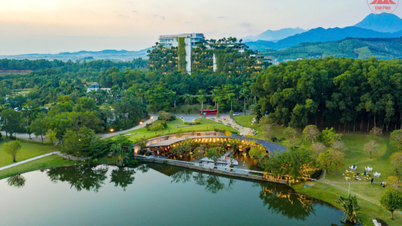










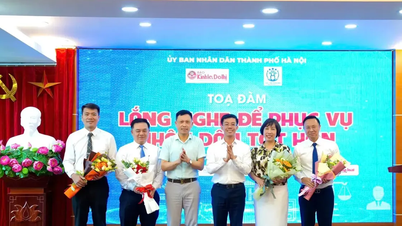

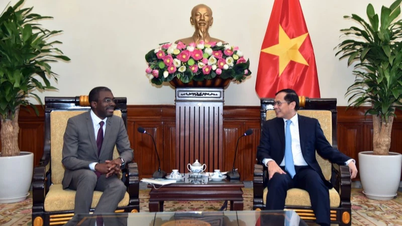

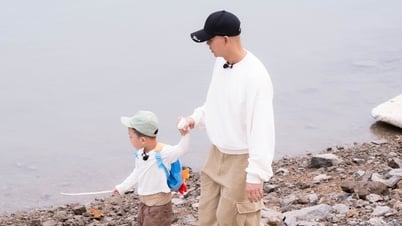

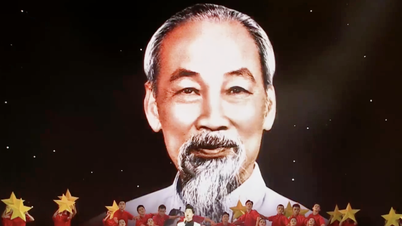
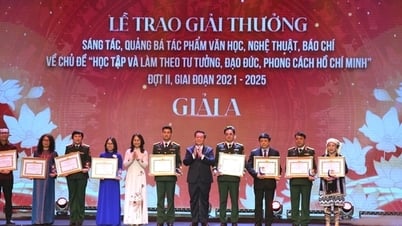

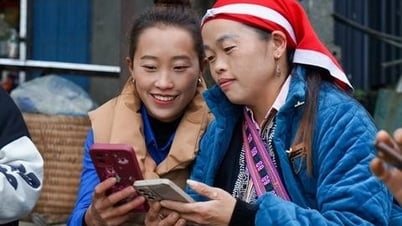










![[Photo] Prime Minister Pham Minh Chinh inspects the progress of the National Exhibition and Fair Center project](https://vphoto.vietnam.vn/thumb/1200x675/vietnam/resource/IMAGE/2025/5/19/35189ac8807140d897ad2b7d2583fbae)














































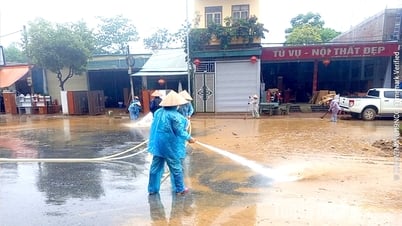

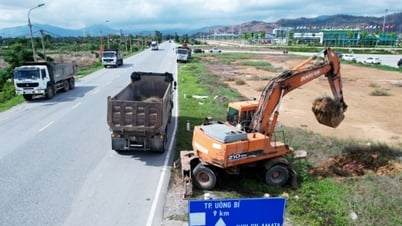

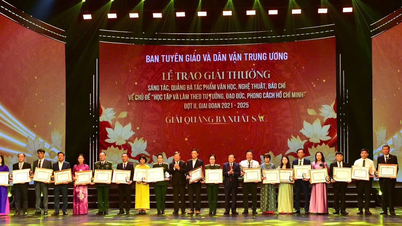






![[VIDEO] - Enhancing the value of Quang Nam OCOP products through trade connections](https://vphoto.vietnam.vn/thumb/402x226/vietnam/resource/IMAGE/2025/5/17/5be5b5fff1f14914986fad159097a677)



Comment (0)